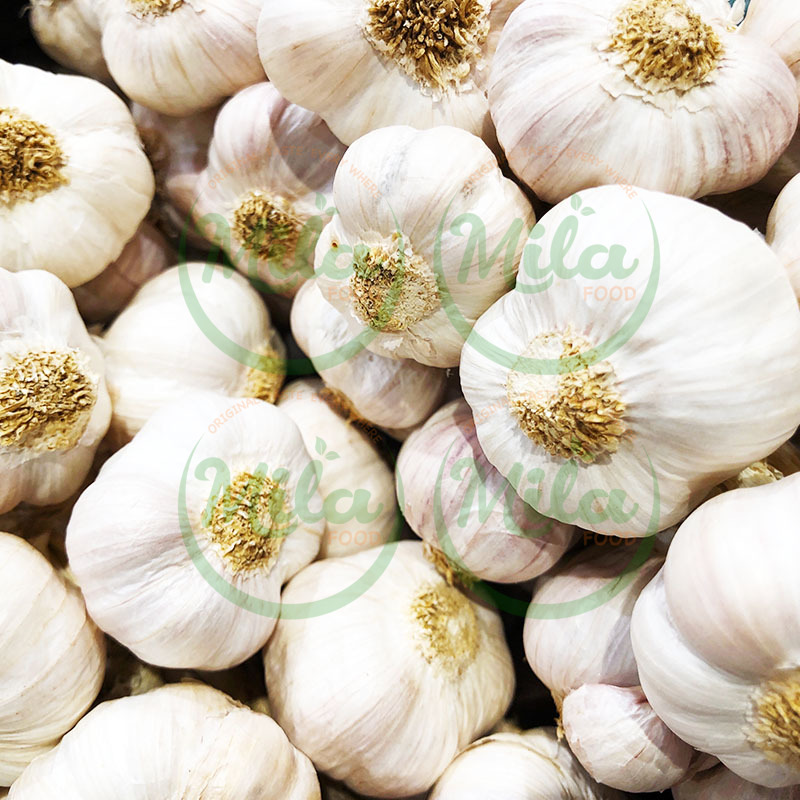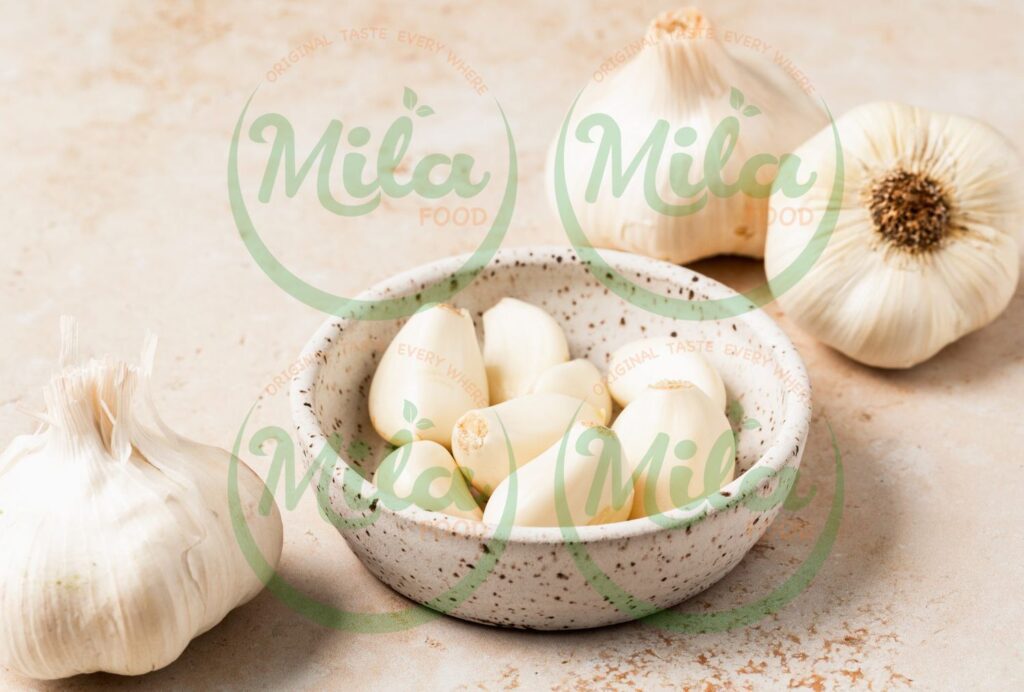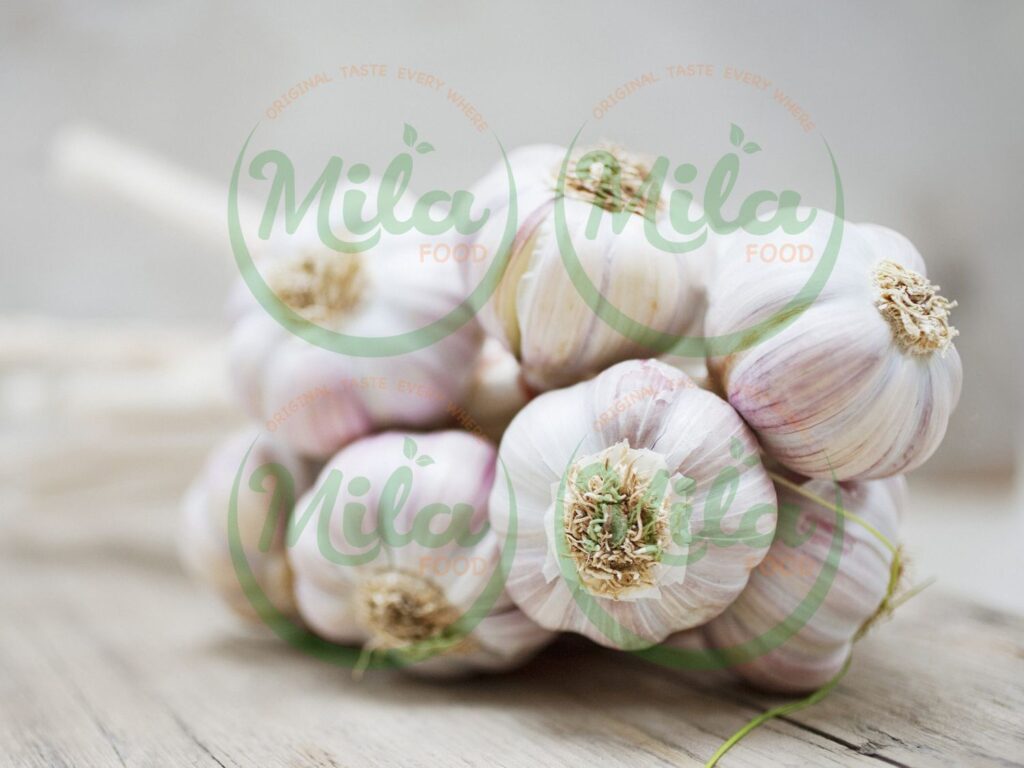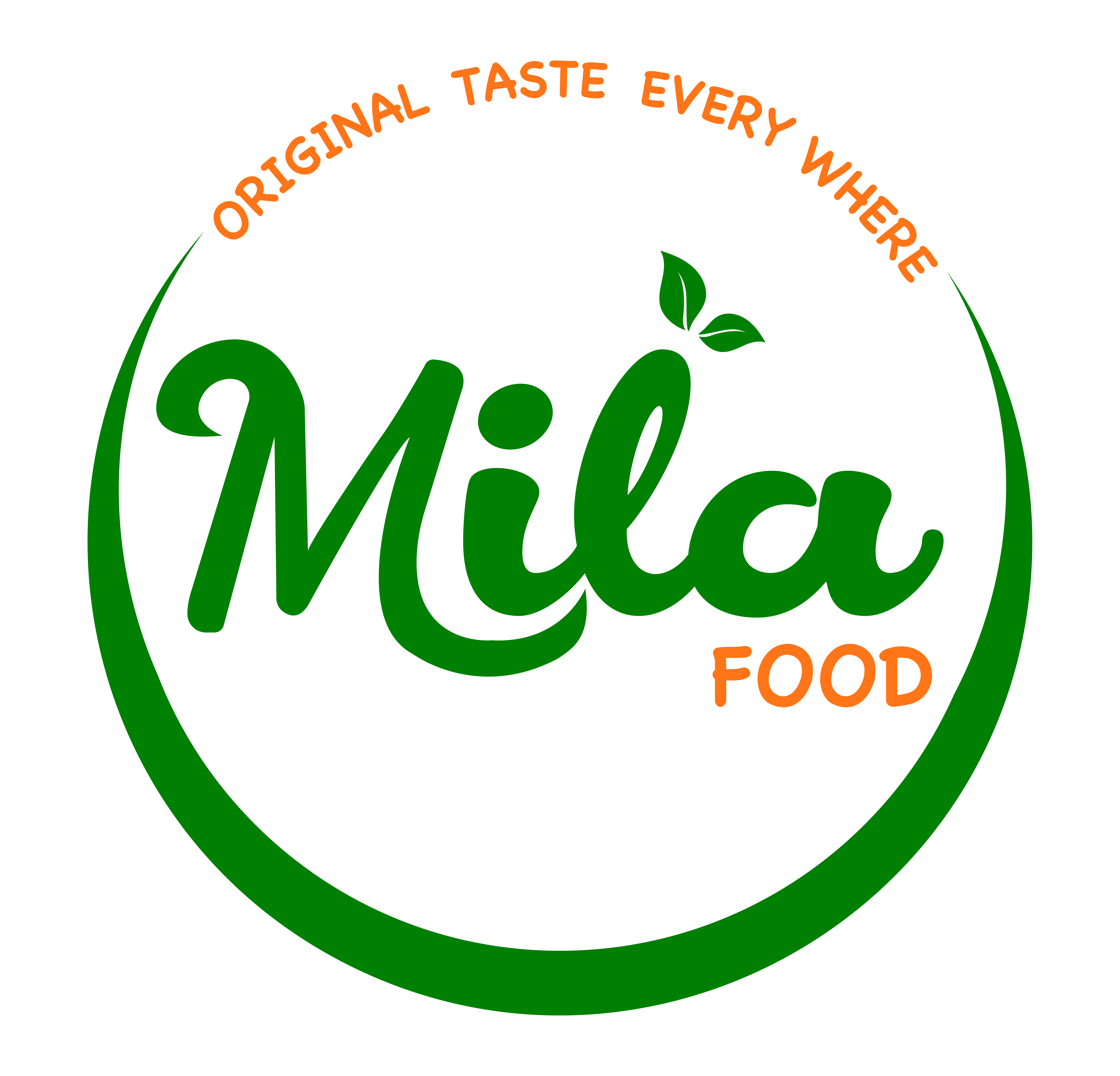


Egyptian garlic, where pungent flavor and culinary magic await. With its rich history and versatile nature, garlic has been a cornerstone of Egyptian cuisine for millennia, adding depth and complexity to a myriad of dishes. Join us as we delve into the captivating story, culinary uses, and nutritional benefits of this esteemed member of the allium family.
History and Origins: Egyptian garlic, scientifically known as Allium sativum, boasts a heritage that spans civilizations and cultures. Believed to have originated in Central Asia, garlic has been cultivated and enjoyed in Egypt since ancient times, prized for its culinary and medicinal properties. References to garlic cultivation and consumption can be found in ancient Egyptian texts and archaeological discoveries, highlighting its importance in Egyptian culture and cuisine. Today, Egyptian garlic continues to be cultivated in the fertile soils of the Nile Delta, embodying a legacy of culinary excellence and cultural heritage.
Appearance and Flavor Profile: Characterized by its distinctive bulbs composed of cloves encased in papery skins, Egyptian garlic exudes a pungent aroma and robust flavor. Its taste is spicy and aromatic, with a subtle sweetness that emerges when cooked. Whether minced, sliced, or roasted, garlic adds depth and complexity to dishes, enhancing the overall flavor profile with its bold presence.
Culinary Uses and Applications: Egyptian garlic is prized for its culinary versatility, lending itself to a multitude of dishes and cooking techniques. It can be sautéed to release its aromatic oils and used as a flavor base for soups, sauces, and stir-fries. Garlic can also be roasted to mellow its pungency and develop a rich, caramelized flavor, perfect for spreading on bread or incorporating into dips and spreads. Additionally, garlic can be minced and added raw to salads, dressings, and marinades, infusing dishes with its distinctive taste and aroma. With its ability to elevate the flavor of any dish, Egyptian garlic is a staple ingredient in Egyptian cuisine and beyond.
Nutritional Benefits: Beyond its culinary appeal, Egyptian garlic offers a wealth of nutritional benefits. It is low in calories and fat, yet rich in essential vitamins, minerals, and antioxidants. Garlic is a good source of vitamin C, vitamin B6, and manganese, which support immune function, cardiovascular health, and bone health. Additionally, garlic contains sulfur compounds such as allicin, which have been associated with numerous health benefits, including reduced risk of chronic diseases, improved circulation, and enhanced detoxification. Incorporating Egyptian garlic into your diet can help promote overall health and well-being, while adding depth and flavor to your culinary creations.
Cultivation and Sustainability: Egyptian garlic is cultivated in the fertile soils of the Nile Delta using sustainable agricultural practices. Traditional farming methods, including crop rotation and natural pest control, help maintain soil health and biodiversity while minimizing environmental impact. Whether grown on small family farms or larger agricultural estates, Egyptian garlic reflects a commitment to sustainability and responsible stewardship of the land.

